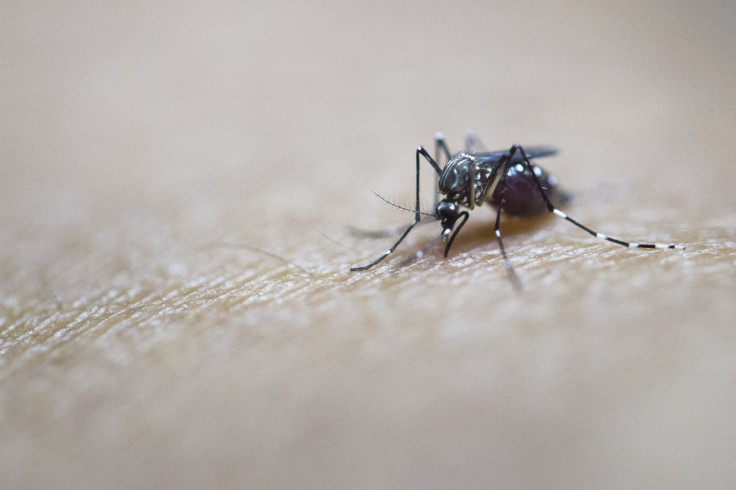Phase 3 trial shows safe and effective one-shot chikungunya vaccine
The Lancet's recent study reveals that a single-dose chikungunya vaccine is deemed safe and triggers a robust immune response in phase 3 trial, showing promising preventive potential.

The Lancet journal has published the results of a phase three trial indicating that a single-dose vaccine for chikungunya is safe and elicits a robust immune response against the viral disease. However, the trial could not assess whether the VLA1553 vaccine, developed by Valneva, provides protection against the actual disease due to its non-endemic location.
Chikungunya is a mosquito-borne illness caused by the chikungunya virus (CHIKV), which is prevalent in certain regions of Africa, Asia, and the Americas. Infected individuals typically experience fever within four to eight days of being bitten by an infected mosquito. Symptoms include headaches, fatigue, nausea, and severe muscle and joint pain. The joint pain can be incapacitating and may persist for days, weeks, months, or even years. Although severe illness and mortality are rare, older adults and newborns face the greatest risk.
Presently, there are no approved vaccines to prevent CHIKV infection, nor are there effective antiviral treatments available for the disease. Martina Schneider, the Clinical Strategy Manager at Valneva and lead author of the study, stated that the VLA1553 vaccine could potentially be the first chikungunya vaccine accessible to people residing in endemic areas, as well as travellers to those regions or locations at risk of future outbreaks.
Schneider further emphasised the vaccine's ability to maintain high levels of antibodies after vaccination, which is crucial considering the sudden recurrence of chikungunya outbreaks. The strong immune response observed in older participants is particularly advantageous given that age is a risk factor for the severity and mortality of the disease.
Katrin Dubischar, the Chikungunya Vaccine Programme Director at Valneva, emphasised the lack of dedicated treatments or vaccines against chikungunya and highlighted its potential global spread, fuelled by climate change and the expanding habitats of the mosquitoes that carry the virus. Dubischar stressed the importance of having an effective vaccine to enhance preparedness for future outbreaks.
The phase three trial enrolled 4,115 healthy adults from 43 study sites in the US. Among the participants, 3,082 received a single dose of VLA1553 via injection in the arm, while 1,033 received a placebo. All participants were included in the safety analysis, but the immune response was only assessed in a subgroup of 362 individuals (266 vaccinated and 96 given the placebo). Immune responses were evaluated at one week, 28 days, three months, and six months post-vaccination, and participants recorded any adverse events in an electronic diary for 11 days following vaccination.
After a single dose, VLA1553 induced antibody levels that were considered protective against the disease in 99 per cent (263/266) of the vaccinated participants. The researchers found no significant difference in immune response based on age. VLA1553 was generally well tolerated across all age groups, with most adverse events reported as mild or moderate.
The most common adverse events among vaccinated individuals were headaches, fatigue, muscle pain, joint pain, and injection site pain. After six months, there were more adverse events recorded in the vaccinated group compared to the placebo group. The safety profile in older adults was similar to that of younger adults.
The study authors acknowledged certain limitations of their study. As the trial did not take place in an endemic region, participants' pre-existing immunity to the chikungunya virus remains unknown, as does the vaccine's safety in this population. Additionally, since the vaccine is derived from a weakened form of the live virus, it may not be suitable for individuals with compromised immune systems or pregnant women.
The authors also recognised the necessity of administering a chikungunya vaccine to children to effectively control the endemic disease. Consequently, an ongoing study on adolescents in endemic areas of Brazil is currently investigating safety and efficacy in this age group.
Kathryn Stephenson, from the Centre for Virology and Vaccine Research at the Beth Israel Deaconess Medical Centre, commented that the positive results of this trial are encouraging for pandemic preparedness against CHIKV. She noted that CHIKV and other arboviral infections continue to pose global threats due to the expansion of mosquito habitats resulting from climate change, trade, and travel.
Stephenson, who was not involved in the study, highlighted the importance of further research on VLA1553 in endemic regions and expanded populations, including ongoing trials in Brazilian adolescents, as well as real-world effectiveness studies during actual CHIKV outbreaks.
© Copyright IBTimes 2025. All rights reserved.






















